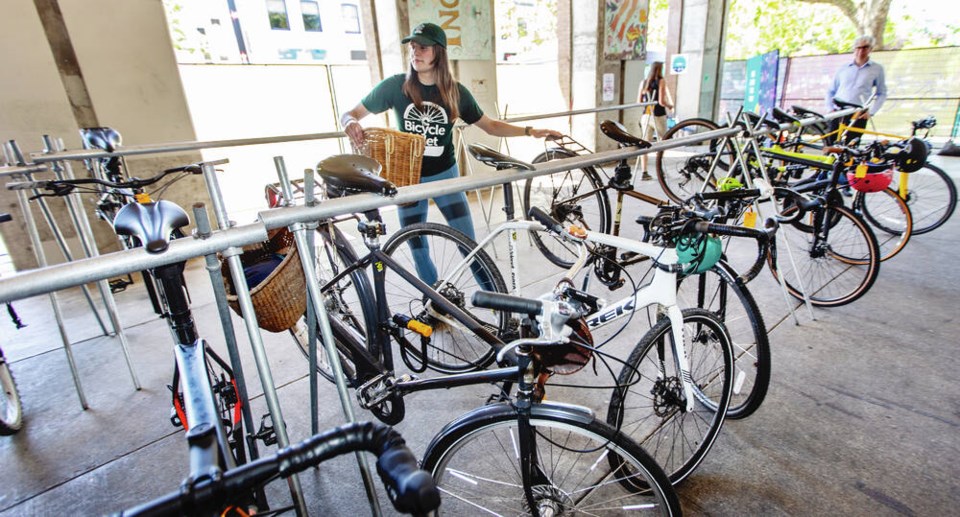The Victoria Bike Valet service announced recently is one of the best urban-commute ideas to come along in decades.
Riders who avail themselves of this service and use the now tried-and-true 529 Garage anti-bike-theft app are not only giving themselves huge peace of mind for their bike security, but have taken a tangible step in building a safer, more livable region for all of us.
Why?
Because despite the promise held in these two projects, bike theft remains a prolific, insidious crime problem affecting all of us.
Stolen bikes are one of the best forms of currency in the “hot” goods market. Bikes are the “cash” swapped for drugs or other items of stolen property. They are also often an essential means of transport for thieves committing all kinds of other crimes such as break-ins, car prowling and drug trafficking.
Beyond the criminal realm, bicycles are a commodity like any other product. So it’s natural that in this time of material and supply-chain shortages through the COVID period, the value of all commodities, bikes included, are spiralling.
Second, the popularity of biking generally is steadily increasing because of the price of gas and the steady conversion people are making toward a healthier commute. So the supply of bikes available to steal out there is also steadily increasing.
It’s now not uncommon anymore to find victims who have lost three bikes to theft.
So what can be done to help prevent bike theft?
I watched a fascinating video from the city of London (U.K.) police who enlisted the help of a professional bike thief to show the public the best and worst ways to secure a bike from theft.
This pro defeated the cheapest locks within 4 to 6 seconds and managed to get through the best-rated locks in just over a minute.
There’s scores of websites and videos which will give all the information you need to lock up your bike and keep it relatively safe. I use the word “relatively” because clearly, as the London police video proves, no lock is infallible.
I won’t bother with a detailed rundown around bike lock safety, but according to research done at McGill University, with chain and cable locks you’re 10 times more likely to lose your bike as compared to the hardened steel “U-Lock” types.
If you’re really serious about things, use two locks to secure your bike, because as I’ve mentioned in other articles, the enemy of the thief is time.
The thief will always make a time assessment on the “job” to be done. A 10-second “clip and slip” is way more desirable than the noisy and conspicuous minute-and-a-half needed to churn away, sparks flying, while cutting through a steel bar with a battery-powered angle grinder.
It’s reasonable to ask then: If it’s so bad, then why aren’t the police doing more (or anything) about it? Well, they are actually.
Police impound cages are usually overflowing with recovered bikes. Most recovered bikes are sent to auction after 90 days, only to have those property compounds quickly fill up once again.
The persistent problem is a lack of bike registration by the owner. This pretty much denies any ability for the cops to return a bike to a theft victim. The McGill study shows that only 2.4% of stolen bikes are ever returned to the owner.
Cops regularly deal with persons who are riding around on a different bike every day they run into them, and most of the time charges cannot be laid. That’s because an essential for making out a theft case in a Canadian court is to be able to prove ownership of the property in question.
The app 529 Garage is one way to solve that problem. It was developed by Xbox creator J. Allard, who had lost one too many bikes to theft in his life and was determined to do something about it.
The program saw 25,000 bikes registered in the first year and is now hovering around 2 million registrations throughout North America. Its partnership with the Vancouver police saw a 39% reduction in bike thefts in the four years following its start-up.
The other way to solve some of this problem is to have a warm friendly body watching over your beloved bike while you’re getting on with life or work. So hats off to the bike valet service. I hope it keeps running past November.
Twenty per cent of bike-theft victims stop riding altogether. That fact alone requires us to do better.
Doing better starts with these types of programs. They are going to put a small but meaningful crimp in a serious crime issue plaguing our region.



